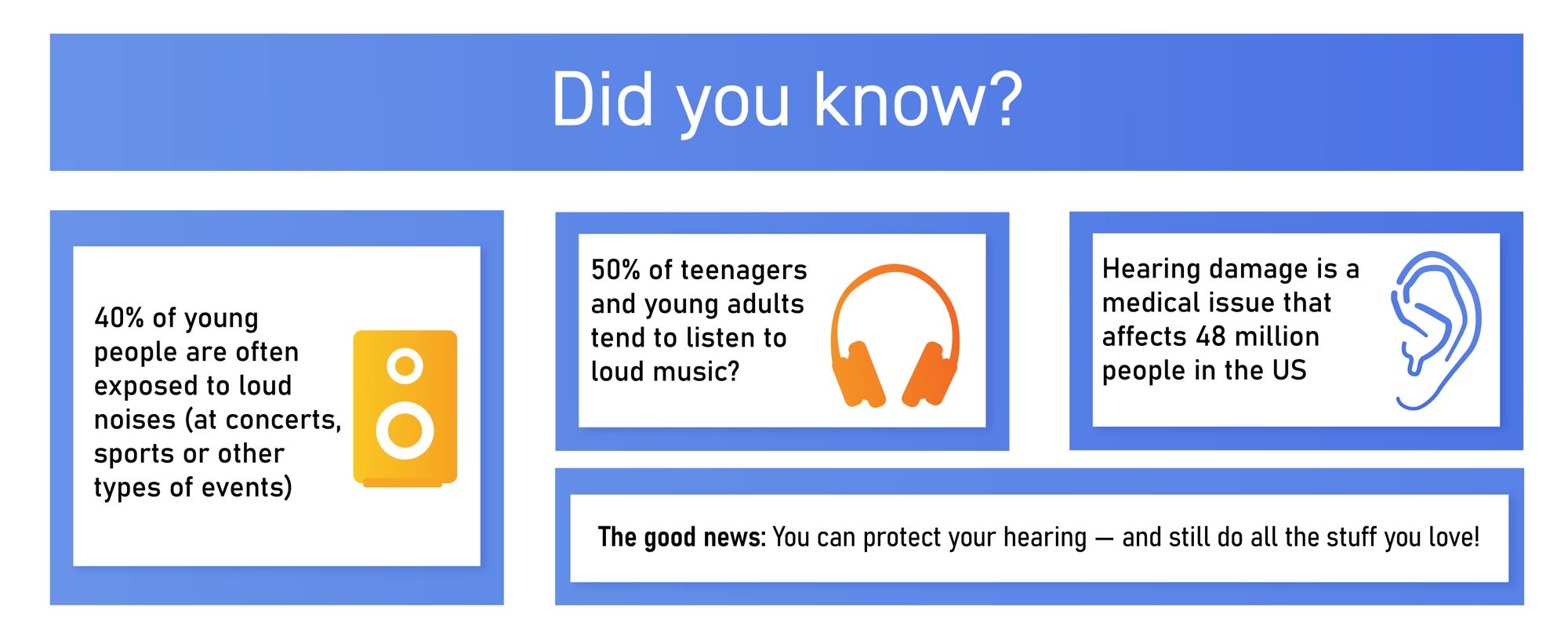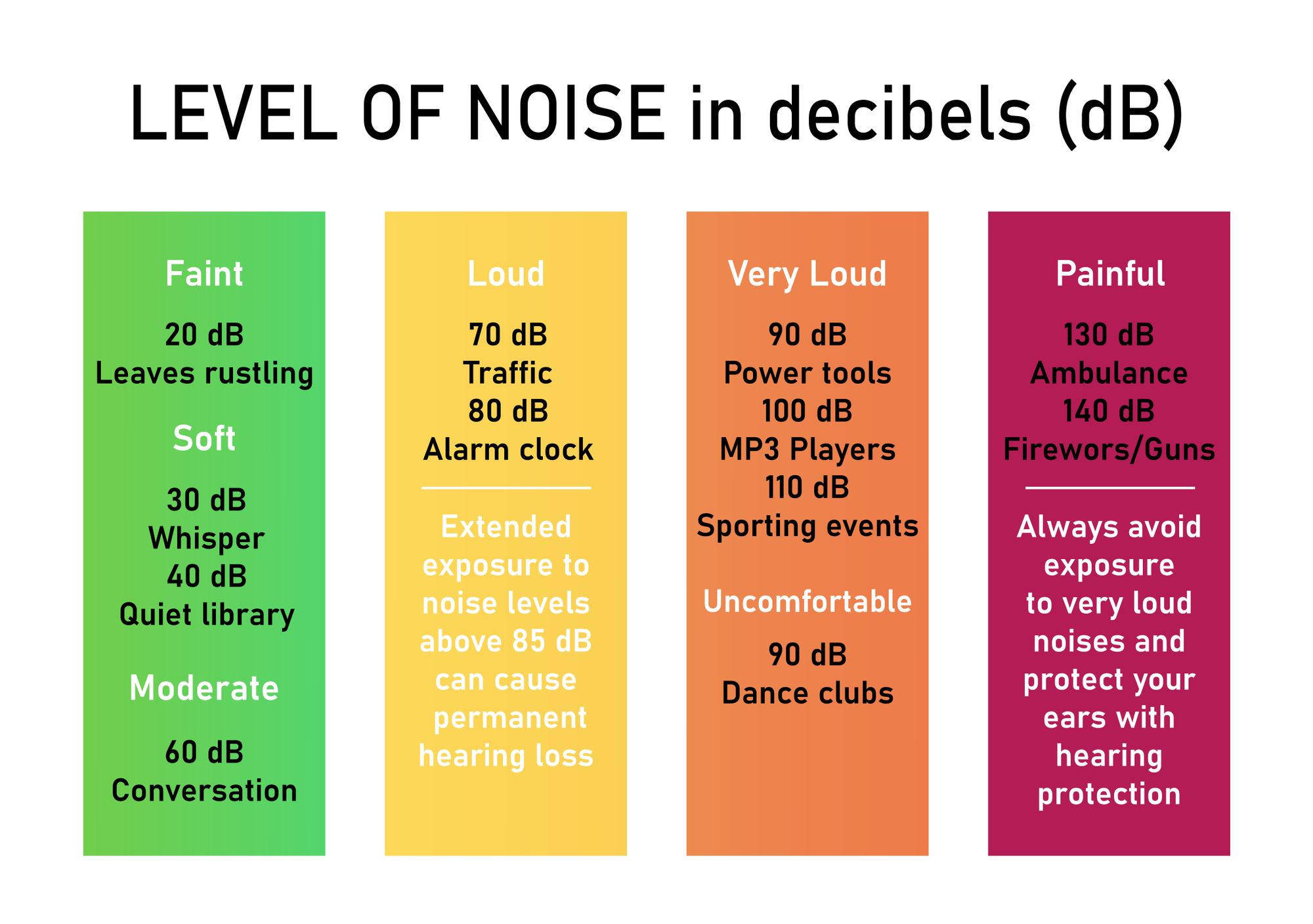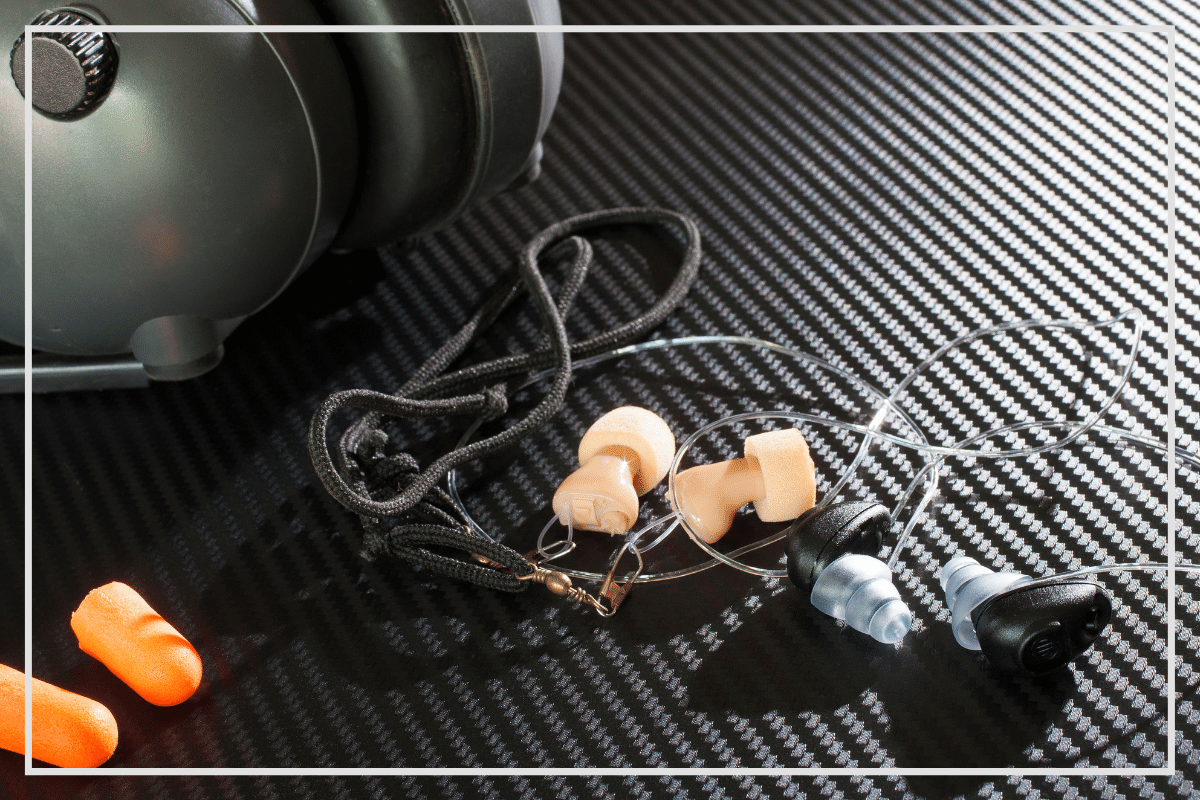- Why Is It Important To Protect Hearing
- How To Protect Your Hearing
2.1 During Events And Activities
2.2 Managing The Sound Environment At Home
2.3 Take Precautions At Work
2.4 Get Your Hearing Tested - Protecting Babies Ears From Loud Noises
- Ways To Protect Ears From Loud Noise
4.1 How Loud Is Too Loud
4.2 Listen To Music Safely
4.3 Wear Protective Hearing Gear - How To Protect Your Ears In Daily Life
5.1 Give Your Ears Time To Recover
5.2 Avoid Cotton Swabs
5.3 Keep Your Ears - Do Noise Cancelling Headphones Protect Hearing
- Additional Hearing Protection Safety Tips
- Protect Your Hearing With Decibel Pro App
Because hearing is one of our most important senses, we should always be mindful of keeping it safe. In this article, we’re getting into how to protect your hearing and your ears in daily life.
Why Is It Important to Protect Hearing?
Hearing keeps us connected to the world around us, it allows us to communicate, bond, laugh, experience life. That’s why protecting your hearing should be high on your priority list.
Many times, you can be exposed to loud noises that are harmful to your hearing without even noticing it. It may be the high-volume settings on your headphones, the high-intensity sounds at work, or the constant and loud city noises we hear every day. Such high noise levels can, over time, cause hearing damage and even lead to hearing loss.
To protect your hearing, you should monitor noise levels, avoid unnecessary or dangerous exposure, and wear hearing protection when needed.

How to Protect Your Hearing
The best way to protect your hearing is to completely avoid exposure to dangerous noise levels. Sounds above 85 dB can start damaging the hair cells in your inner ear and cause hearing damage. However, we all know it’s practically impossible to avoid loud noise altogether. It’s not like we can put our lives on pause.
The good news is that there are plenty of practical solutions to protect your hearing while still doing the things you want.
During Events and Activities
There are numerous daily activities and events that generate noise levels above 85 dB. For example, a lawnmower can exceed 90 dB, and a rock concert can exceed 110 dB. Even listening to music on your earphones at full volume can reach 100 dB.
To protect your ears when you are engaged in any such activities, consider wearing hearing protection. There are many earplug and earmuff models you can choose from to find the perfect fit. Or, in the case of listening to music on your headphones, consider turning the volume down and limiting your sessions.
Managing the Sound Environment at Home
We all enjoy watching a blockbuster movie with the sound system on full blast. It makes us feel part of the action. The same happens when we listen to music or our favorite TV show.
What we don’t consider is that exposure to harmful noise levels in our home can lead to hearing issues. To protect your hearing from high noise levels like the ones coming from your TV, sound system, or headphones, monitor noise levels using a sound level meter or an app and consider turning down the volume whenever noise levels exceed 85 dB.
The rule of thumb for listening to music on your earbuds or headphones is to set the volume to a maximum of 60%.
Take Precautions at Work
Work environments such as industrial plants or construction sites are known to be very noisy. Consequently, noise levels in these workplaces are properly monitored and regulated.
Still, what many don’t know is that other work environments are also potentially dangerous to our ears. The constant background noise of open-plan offices, the humming of copy machines, printers, computers, or other devices can also be disruptive or potentially dangerous.
To protect your hearing, you should monitor your workplace noise levels and take precautions such as wearing noise-canceling earphones or limiting the time you spend in noisy areas.
Get Your Hearing Tested
Another important factor in keeping your hearing safe is monitoring your hearing health. Regular hearing tests can help you identify any hearing damage or issues early on. In turn, this helps prevent any further damage and hearing loss. Monitoring your hearing is essential to your hearing health and especially important if you work in noisy environments and as you age.
You can make regular appointments with an audiologist to test your hearing or use an app like Decibel Pro.
Protecting Babies Ears from Loud Noises
Babies are particularly vulnerable to loud noises as their hearing is still developing and their ears are very sensitive.
To protect babies from loud noises, you should consider:
- Using hearing protection like earplugs or earmuffs whenever you are in a potentially loud environment
- Limiting general noise levels in your home
- Removing the child from the room when using appliances like the vacuum cleaner
- Avoiding allowing the baby to stand close to loudspeakers
- Avoiding loud toys, especially the ones that make alarm or siren sounds or squeaky noises
Ways to Protect Ears from Loud Noise
To protect your hearing from loud noise, keep in mind the maximum recommended decibel level (85 dB). Whenever you are in a circumstance where noise levels exceed this limit, distance yourself from the noise source or choose an appropriate hearing protection device.
How Loud Is Too Loud?

The general rule is to avoid noise levels above 85 dB, especially for an extended period (over 8 hours). Prolonged exposure to noise levels above 85 dB can lead to hearing damage or even hearing loss.
You should also be mindful of loud noises in short bursts, such as the noise from firecrackers, guns, or explosions that can exceed 100 decibels. Exposure to only minutes or seconds to very loud noises can lead to hearing damage and hearing loss.
Listen to Music Safely
When you are enjoying your favorite music, don’t forget to limit both the volume and the time. The recommended limit is 60 minutes at 60% of the volume per day.
As tempting as it is to test the limits of your sound system or earphones, try to keep the volume down and give your ears regular breaks to avoid hearing damage.
Wear Protective Hearing Gear
Using protective hearing gear can prevent hearing damage or loss. Use earplugs or earmuffs whenever you cannot avoid exposure to noise levels above 85 dB.
How to Protect Your Ears in Daily Life
Apart from minding noise levels in your home, work, and other environments and avoiding harmful exposure, you can also use the tips below to protect your ears:
Give Your Ears Time to Recover
Noise levels in bars, clubs, or concerts can exceed 100 dB. Whenever your ears have been exposed to high noise levels, they will need a break to recover.
Specialists recommend that you give your ears a 16-hour rest for every 2 hours spent in environments exceeding 100 dB. This will help prevent hearing damage and reduce the risk of hearing loss.
Avoid Cotton Swabs
Although they are commonly used for ear cleaning, cotton swabs are not actually good for your hearing.
Inserting cotton swabs in your ears can:
- Cause eardrum damage and compromise your hearing. This is because the eardrum is very thin and sensitive and easily breakable.
- Push earwax further down into the ear canal and cause blockages or infections due to debris and germs.
- Increase ear debris and cause irritation because of the small cotton pieces that get left behind as you swipe the cotton swab.
Keep Your Ears Dry
Excess moisture is another important aspect to avoid in order to protect your hearing. It can lead to bacterial growth and cause infections that attack the ear canal.
Make sure you always use a towel to dry off your ears after you take a shower or if you go swimming. Alternatively, you can use swimmer earplugs to keep water from entering your ear canal.
Do Noise Cancelling Headphones Protect Hearing?
There are two types of noise-canceling headphones: passive and active. Both have different ways of protecting your hearing.
Passive noise-canceling headphones (PNC) seal the ears off from loud outside sounds while still allowing the user to communicate. They are used for protection against explosive sounds like gunshots and firecrackers, and high-frequency sounds.
Active noise-canceling headphones (ANC) identify the pitch of ambient sound and block it out. They are ideal in loud environments with constant noise levels but do not have a protective seal for protection against explosive sounds.
Additional Hearing Protection Safety Tips
Here are some lesser-known tips you can follow for additional hearing protection:
- Always choose the right hearing protection for the job. Not all hearing protection devices offer the same protection level.
- Replace worn hearing protection regularly.
- Avoid smoking as it can affect your blood circulation and damage your hearing.
- Increase your exercise level to increase blood flow to the ears and maintain your hearing health.
- Manage your stress levels as stress can cause tinnitus.
- Avoid taking medication that can affect your hearing (known as ototoxic).
Protect Your Hearing with Decibel Pro App
Decibel Pro is a great hearing protection tool you can easily download on your iPhone or iPad and constantly have handy.
It is a professional sound level app that provides instant noise level readings on your screen. You can use it to monitor noise levels in your home, workplace, or other environments and protect your ears from dangerous noise. Decibel Pro also includes a convenient hearing test you can regularly do from the comfort of your own home.
To learn more about the app, click here.



